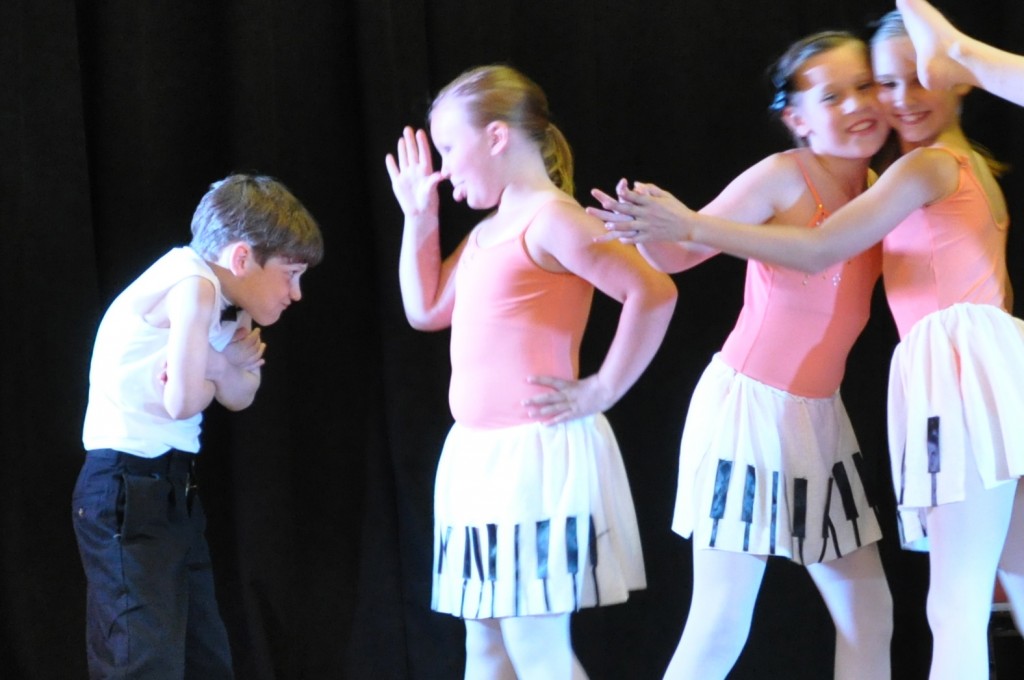I wholeheartedly believe that a thorough education in the arts (music, dance, theater & visual arts) is an essential part of childhood.
I should clarify that I don’t mean listening to music in the car or playing with crayons on a Saturday morning, but intentionally studying art – learning about the lives and techniques of the masters, visiting museums, performing, studying, and creating with a variety of mediums.
From the time of Plato scholars have recognized the importance of the arts to society, and that recognition continues to grow. Among the many things that the arts encourage, these are my favorite:
Challenge & Success
Students of all levels need to find both something they excel at, and something that they must work hard to accomplish. The arts offer both ends of the spectrum. Coordination, rhythm, expressiveness – these are not skills that we are all born with. Study of the arts allows us to perfect the both parts of us that require effort and work, and those that feed our soul. In the process we develop self esteem and diligence.
Cultural Awareness
The arts are not the same world-wide. Just analyze the use of color alone, and you can keep your mind very busy trying to understand the similarities and differences among cultures. Participating in the arts gives our students the opportunity to share in the traditions of others. Awareness of the variety of beauty in the world is a simple way to become better citizens; changing how we perceive and understand what we experience.
Emotional Exploration
It is obvious that the arts allow us to express our emotions, but I think it is even more important to be aware that the arts allow us to explore unfamiliar emotions. Just take a look at the field of art therapy. Movement, sound, and visual creations allow children a safe place to both become aware of and demonstrate feelings of frustration, sadness, and anger in a healthy way. Arts education also strengthens students by allowing them the opportunity to successfully overcome stage fright at a young age, reforming their perception of their own capabilities.
Improved Learning
The study of and participation in the fine arts has been scientifically proven to improve learning throughout all academic areas. Neurological research has shown that the process of creating engages areas of the brain necessary for problem solving, perceptual, and cognitive skills. From fine motor skills to mathematics, the arts benefit us by encouraging us to examine deeply and strive for balance. Over the long term, the study of the arts fosters a deep love of learning. “The arts enhance the process of learning. The systems they nourish, which include our integrated sensory, attentional, cognitive, emotional, and motor capacities, are, in fact, the driving forces behind all other learning” (Jensen, 2001).
Creativity
It is well known that I am passionate about the importance of imagination. The first step in being creative is learning to truly see, hear, and experience the creative work of others. Diligent study of the fine arts is a key component in enhancing aesthetic awareness. A study of more than 2000 children found that those who intentionally studied the arts were far superior in both creative thinking, and self-expression (Burton et al., 1999).
Collaboration
A learning environment rich in the arts enhances students’ awareness of and respect for others. Children who must sing or dance together are provided with the opportunity to work on team building, flexibility, order, and cooperation. These are valuable skills both on the playground, and in the workplace.
So, I know what you are thinking. ” I don’t have TIME to add one more thing to our schedule.”
I get it – we are busy people. Let me put your heart at ease. You don’t need to study all of the arts all of the time (but if you can, go for it!). Painting class in the spring is easily rotated with trips to the symphony in the winter.
Perhaps the most fundamental element of an effective education in the fine arts is diligence. Regular work, regular exposure to new ideas, and regular time to create allow for both meaningful learning and a sense of wonder.
Need more proof? OnlineColleges.net has compiled a list of the top ten studies over the past decade that demonstrate the importance of the arts.
Childhood is short. Which of the fine arts would your kids like to explore?


